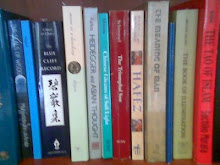Preface:
As an individual, we lost the political power. As citizen, we become slave of the state. As consumer, we are swamped by material goods. As we accept paper money, we enslaved by banks and usurious system. As one take up arm, one is defeated militariry and branded as terrorist. How do we begin to take Allah deen and commands ?. This article show the pointers....)
In the present world situation it is important that we, the Muslim nation, both protect and propagate the Deen. On the face of it, admittedly, it appears confusing. We have been landed with a secret society of terrorists in a secretly funded and executed guerrilla war. There is a hidden leadership with a hidden agenda, and one highly dubious, iconic ‘Old Man of the Mountains’. While pretending to be Islamic, they slaughter Muslims. Yet at the same time that they pose as ‘extremist’ Muslims, they have a zero ideological position. The founding terrorist groups of 19th century Russia had Proudhon, Bakunin and Marx. The Chinese revolutionaries had Mao’s Little Red Book. Yet when they call on us to rise up and destroy, they do not tell us what they are calling us to establish.
Since Deen is not founded on ideology but on ‘aqida and ‘amal and jama’at, how can we, the Muslim masses, fall behind them when they have no jama’at, we cannot approve of their ‘amal, and we know nothing of whatever ‘aqida they may claim? Added to this is that while terrorism and anarchism have an ideological base, Deen has a ruhani base which traces social equity back to the right-acting individual. ‘Birr’ is a term both of Fiqh and Tasawwuf. Qadi Iyad’s ‘Tartib al-Mudarak’ was written to demonstrate that, properly speaking, the Shari‘at is not founded on canon principles, but in reality is founded on right-guided and right-acting individuals. In other words, without a just Qadi there can be no just society. The existence of the zahid fuqaha is the evidentiary necessity of a Muslim society.
Our present difficulty does not lie with these people, but in the bitter fact that kafir media and indeed state authorities in some cases have taken this as a licence to persecute the Muslims and in a massive anti-Da’wa have used these grisly events to stand as a denunciation of Islam itself.
In order to steady our own ship of state, which at present has no commanding officer on the bridge, just as, in our metaphor, in a similar situation the sailors without a captain would simply go back to the basic rules of sailing in order to survive, so we must return to the basic essentials of our Deen in order to steady the boat and give a safe passage. Our compass, the Book of Allah, gives us clear guidance. So important to the Deen is it, that we repeat it in at least five Salat in a day.
The first benefit we gather from this modest glance at our Fatiha is that this affair is a Divine matter that can never be reduced to the dialectics and vengeance of a chaotic insurrection led by an embittered secret society which is now no longer secret, for Allah has laid bare their identity through His ruling of the universe from within the universe, devoid of interventions yet held in constant dynamic by His generous answering of the prayers of the muminun.
Now it is clear that in effect there is no such thing as Al‑Qaeda, and this was confirmed to us by the foolish Saudi ambassador to Britain when, in a TV interview, he mentioned their name 20 times. It had to mean they were not what he said, but something else, and what that something else turns out to be is the embittered second and third generation wave of wahhabis turning against their two old enemies, the Saudi tribe and the great Jama’at beyond their desert sands who not only worship Allah but also love the Rasul, may Allah bless him and grant him peace.
Allah is “the King of the Day of Judgment,” that is, ‘King’ in the Riwayat of Warsh, which as our scholars confirm was the Reading of the Salaf communities. This reminds us daily that the Judgment which matters, when that Judgment comes, is neither on nations nor on ideologies. The Judgment is on the person, that person who had been appointed in this world as the representative of the King Himself. What is at issue, that is, what matters, is what the individual makes of his life. What sum of actions does he bring to the Reckoning? So, paramount to everything is the central reality that we come before Allah to face Him alone, or, as in His generosity He grants that we may stand before Him as couples, but the meaning of the Day of Judgment is that the ultimate reality is what we do with our lives.
This, we must note, is also why we disagree with the Shi’a. Because it means that taking a sect is no protection, that making Takia is no protection, that practising Mu’ta is no protection. The One who is the King is also Ar‑Rahim. What we bring to Allah that may rescue us are those deeds which in His Book He has reminded us are those actions pleasing to Him, and they are all actions of mercy and generosity, and their motor-force which has realised them is Taqwa.
In the central ayat of the Fatiha comes the position of the slave. Our ‘ulema have pointed out that the first part of Fatiha is about Allah, the middle portion is about the slave, and the last portion is about the slave’s journey to Him. The middle ayat is the ayat of absolute dependence, and our dependence is on Allah, the Lord of all the Worlds.
Nik Aziz Dalam Kenangan
10 years ago



